
At the heart of Christian life
At the heart of Christian life is the encounter with Jesus Christ, and the ongoing call to make Jesus the total meaning and centre of our lives. Being Christian is being in Christ. As the people of God, we are made holy by our incorporation into Christ at baptism and we are called to become holy, to deepen our discipleship to Christ as learners and followers of his way back to the Father.
In this pilgrimage in holiness and to holiness, it is the power of the Holy Spirit that enables us to respond to Jesus in our time. This is the gift of the Spirit we celebrate not only on this Feast of Pentecost but across the entire arc of our Christian lives.
Source of grace and transforming power
This is because the Holy Spirit is the power through which the risen Lord remains present in the history of the world. This Spirit is present within a Church which is holy and called to grow in holiness. As Christians we experience the Holy Spirit in the preaching of the Word, also known as “the sword of the Spirit”. The Spirit is also invoked and transforms the gifts of this world into the very presence and mercy of Christ encountered in the sacraments. In this way the Spirit brings grace to the ordinary, heals and reconciles, and bears fruit as the principal agent of evangelisation.
At the heart of Christian life is the encounter with Jesus Christ, and the ongoing call to make Jesus the total meaning and centre of our lives.
To put it another way, when we apply ‘contact tracing’ to the Church’s faith we see the imprint, the influence, of the Holy Spirit spread far and wide across the Church’s life and activity. There is the Holy Spirit working through the generations of saints before us and in those beside us. The Holy Spirit is constantly at work animating our life together as a communion of faith.
Over the long history of the Church we have seen time and again the capacity of the Spirit to renew what is dormant, resist and overcome what is not of God, and to bring forth the new and the unexpected in every age – new religious orders and movements, new vocations, new forms of evangelisation and outreach, new insights for the Church’s learning and renewal so that it can better embody and share the Gospel of Jesus Christ.
It’s personal
However, while the Spirit’s essential role in the Church is recognisable and often celebrated, we have not always been as attentive or cognisant of the role of the Holy Spirit in our individual lives as Christians.
Of course, each of us receives our personal faith from the Church, a Church that faithfully proclaims Christ and to whom Christ is truly present. However, the Church cannot serve as a replacement or a substitute for our personal relationship, our personal encounter of, surrender to and decision for Christ.
As the Cistercian monk and author Thomas Merton writes, “The ritual of baptism is sufficient evidence of the care the Church takes to treat her children as individual persons, and to show a supreme respect for their freedom. Only a person can say ‘volo’ ‘I will’. The Christian is not saved as a member of a mob, by joining in mass acclamations and allowing him or her self to be lost and submerged in the vast anonymous exultation of a totality” (Merton, Disputed Questions, 135).
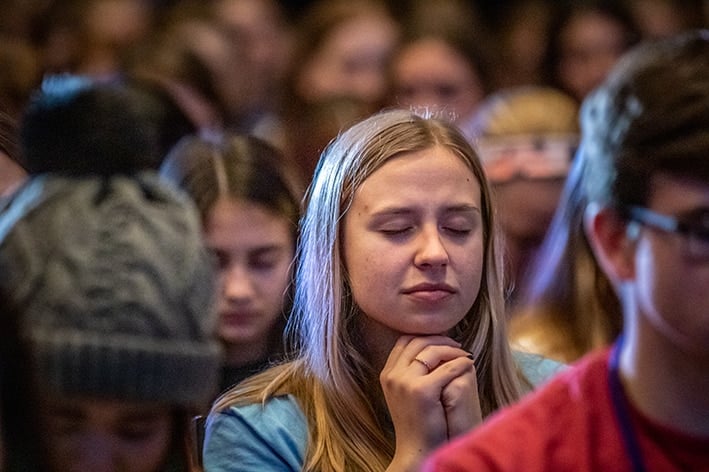
In the image of the Trinity, the Church is not a crowd but a communion of persons, persons who are each and personally a dwelling place of the Holy Spirit, a Spirit who, as the Catechism tells us, continues the presence of Jesus Christ.
A gift for us
However, even when we do come to recognise the Spirit at work in the lives of Christians, we can be tempted to view this holy presence and power as a gift given more often to ‘others’ than to ourselves.
In fact, there can be a tendency within our Catholic culture to attribute any enthusiasm for life in this Holy Spirit as for Christians ‘over there’, a select few, rather than for each and every one of us as baptised disciples of the risen Christ. In some respects this propensity has ‘pigeon-holed’, as it were, the outpouring of the Holy Spirit as significant for only a part of the Church rather than every Christian, whatever their state of life, vocation or temperament.
The out pouring of the Holy Spirit is for every christian, not just for some
As a theologian of another century noted, we need not simply nod politely at others’ experience of the Holy Spirit. We too can truly experience the gift of the Holy Spirit in our life.
The Spirit is real, personal and present in our pilgrimage to holiness which is undertaken in the relationships, families, workplaces, commitments and communities in which we are planted. As the theologian Hans Urs von Balthasar shared, the personal depths of every person and their call to holiness has its source in the eternal, in the God of Jesus Christ in the Spirit who is holy.
The Spirit as principal agent of evangelisation
So how does the Holy Spirit make us holy? How does the Holy Spirit bring about and maintain the life of Jesus Christ in us?
In our pursuit of holiness, we receive the Holy Spirit in Baptism and Confirmation. Our Baptism in Christ calls us to live a new life, a life lived no longer by the flesh or selfish desires of this world but according to the Spirit (Rom 8:5). In Baptism, we become a new creation in Jesus Christ (2 Cor 5:17) and it is for this new life that the Spirit of God dwells in each of us, making us new.
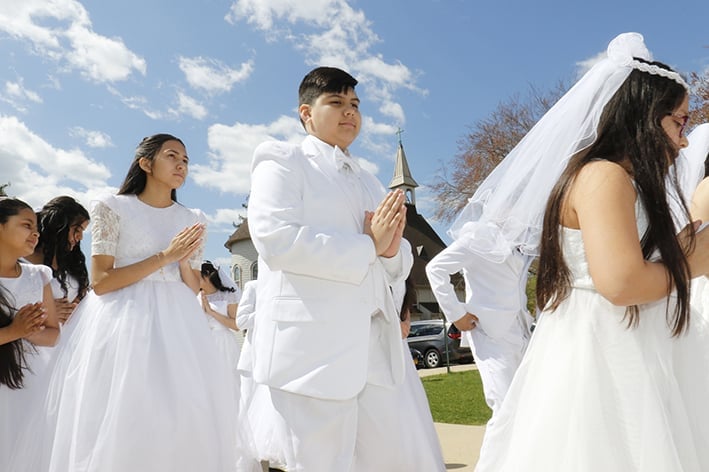
Sealed and anointed with the Spirit at Confirmation, our Christian faith, like those of the disciples at Pentecost, then acquires a new dynamism to choose to live for and in Christ.
The gifts and fruits of the Holy Spirit are bestowed upon us to serve the building up of our Christian life, the life of the whole Christian community and ultimately the world in which we live our discipleship to Christ.
Our reception of the Holy Spirit
However, what can sometimes be overlooked is that the full flourishing of these Spirit-filled gifts and fruits in our life is not automatic. The fruits, gifts and charisms of the Holy Spirit do not manifest themselves in our life independent of our faith. The Spirit’s gifts are not detached from our involvement.
In fact, we see the strong connection between personal faith and the gift of the Spirit throughout the New Testament. In his letter to the community at Galatia, St Paul enquires “Did you receive the Spirit by doing the works of the law or by hearing with faith?” Later St Paul prays for the Christian community that “We might receive the promise of the Spirit through faith” (Gal 3:2, 5; 3:14).
In the Acts of the Apostles Luke remarks of the Gentiles, “God gave them the Holy Spirit just as he did to us and cleansed their hearts by faith”. He reminds them, “Did you receive the Holy Spirit when you believed?” (Acts 15:8-9; 19:2). In his own recounting of Jesus’s mystery, St John the Evangelist speaks in his Gospel of “the Spirit, which those who believed in [Jesus] were to receive…” (Jn 7:39).
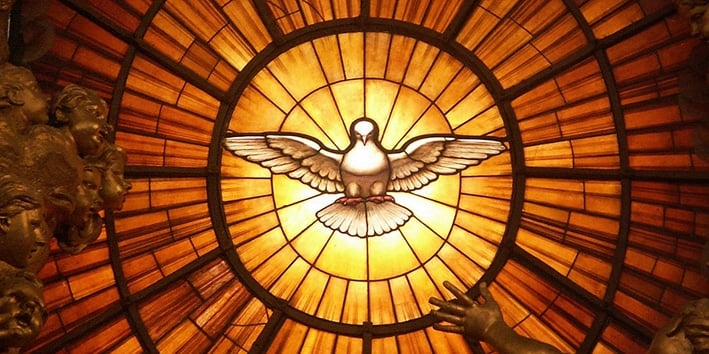
To receive the Spirit is to receive the Lord
It is when the gifts of the Spirit are received by a living faith that Christ’s life comes to full bloom in our personal vocation and commitments. As St Gregory of Nyssa affirms, when we live intentionally and are consciously attuned to the movement of the Holy Spirit, are attentive and invoke the power of the Holy Spirit, we journey “from beginnings to beginnings” in our Christian life. The more we are responsive and docile to the Holy Spirit, the more we find ourselves growing in holiness, in the life and mission of Christ in whom we are created and redeemed.
In order to listen to the Spirit we have to be prepared to be detached from our own plans and projects, for our attachment to our own ideas, points of views and ways of doing things can inhibit our openness to the Spirit who knows what is most needed. As heard in Psalm 127, “If the Lord does not build the house, in vain do the workmen labour”.
The Holy Spirit as God’s presence and power
The Gospel and our Catholic tradition affirm for us that the Holy Spirit is not only a Counsellor and Comforter, though the Spirit is certainly both of these (Jn 14:16, 26; Rom 8:26). The testimony of Scripture and the lives of Christians that have gone before us attest that the Holy Spirit is often a disruptive presence in our life as it seeks to lead us into all the truth of who we are as sons and daughters of God.
As a recent commentator on the phenomenon of COVID-19 observed, “Interruptions are accidental; a tree falls across our usual path through the woods, so we are momentarily diverted. Disruptions are intentional; they have a protagonist, a catalyst creating the disruption for a specific reason”.

Through the Spirit everything changes
Of course, the disruptive force of the Spirit is clear from the Upper Room at Pentecost in the shaking of the house and the tongues of fire that descend upon the apostles, powerful images for a Church today confronting the need for courageous and faith-filled renewal.
So too can the presence of the Holy Spirit shake our own personal foundations, not as a destructive force but as a striking call to conversion to enter into a new world, a new life. The Holy Spirit disrupts our lives for no other purpose, no other intent, than our growth in holiness.
We begin to want to change ourselves
We experience the Holy Spirit when we are moved to make those changes that are necessary for us to be more closely conformed to Christ. We experience the Holy Spirit when we are moved beyond complacency, beyond our own comfort and concerns, to respond to the needs of others.
We experience the Holy Spirit when we are moved beyond justice to the grace of mercy, when we learn to live sacrificially in community, learn to love rather than fear, value communion over competition, and maintain faith, hope and love in the midst of life’s difficulties.
What is more, it is the power of the Holy Spirit that plants within us even this very desire for change and conversion. In the twentieth century, the French theologian Fr Jean-Claude Sagne made the point that the Holy Spirit is both the desire within God’s own self and the desire of God in us.
The Holy Spirit forms, deepens and expands our desire so that we come to desire what God desires. We are drawn by the Spirit more deeply into God’s designs and desires which the Spirit knows and implants within us.
Hence, St Paul can proclaim to the Romans, “God’s love has been poured into our hearts through the Holy Spirit that has been given to us” (Rom 5:5). Within us is the spirit that “searches everything, even the depths of God” (1 Cor 2:10) and that “intercedes for us with sighs too deep for words” (Rom 8:26). This is the work of the Advocate within us, engendering and directing all our longings and desires to God alone.
Diverse expressions
In reflecting on the relationship of the Holy Spirit to our personal holiness, it is apparent that the manifestation of the Spirit in our personal lives will be in accord or harmony with our vocation or state of life.
The Holy Spirit inspires and sustains various expressions of holiness in the world, a Spirit-led diversity that reminds us that difference can be an expression of the one God too. St Paul’s first letter to the Corinthian proclaims, “there are a variety of gifts, but the same Spirit; and there are varieties of services, but the same Lord; and there are varieties of activities, but it is the same God who activates all of them in everyone” (1 Cor 12:4-6).
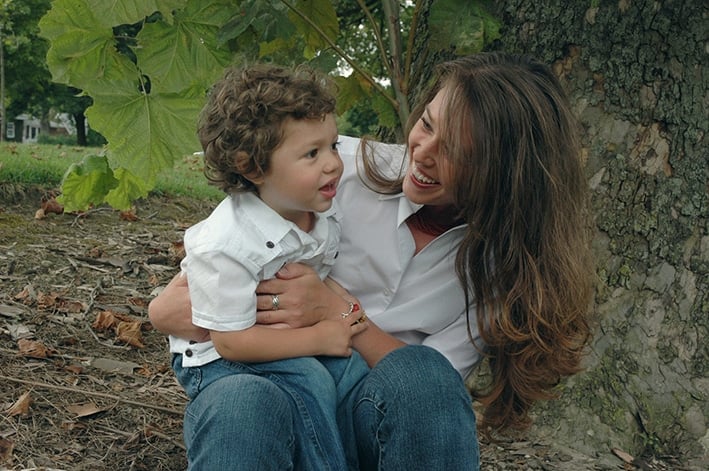
The call to holiness is universal – for all vocations
The call to holiness will look different in the life of a contemplative religious than it does in the life of a wife and mother, as it does for the priest than the layman in the midst of his professional and family life. Each is called by the Spirit to embody holiness in accordance with their state of life. As Merton would share of the spiritual life in general, “How can we expect to arrive at the end of our journey if we take the road to another man’s city?”
Pope Francis observed in Gaudete et Exsultate that we can contemplate holiness and therefore the Holy Spirit, “present in the patience of God’s people: in the parents who raise their children with immense love, in those men and women who work hard to support their families, in the sick, in elderly religious who never lose their smile. In their daily perseverance I see the holiness of the Church militant. Very often it is a holiness found in our next-door neighbours, those who, living in our midst, reflect God’s presence” (Gaudete et Exsultate 7).
It is these diverse yet inseparable expressions of personal holiness that the Church exists to call forward, discern and nourish to full bloom in response to God.
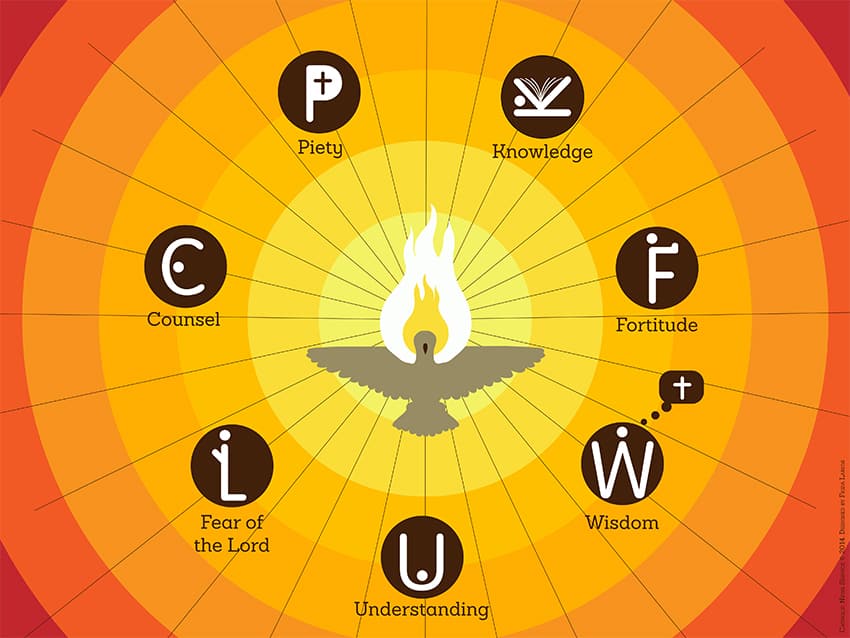
Charisms of the Spirit
This brings us to a critical point for our Church. If these Spirit-given gifts and capacities are not discerned and identified, called forward and nurtured in all of our people, we are literally turning away vocations, great stores of holiness and charismatic openings that God is offering to us to serve the Gospel in our time.
As Sherry Weddell notes in her writing on discipleship, while the gift or charisms of all the faithful are proclaimed by the Church’s teaching, it can be difficult to believe in and live something that you have never heard anyone else talk about or seen anyone else live with intentionality (Weddell, Forming Intentional Disciples, 81).
A gift brings responsibility too
If we fail to talk about and call our own people to the exercise of their gifts and capacities bestowed by the Spirit, and so participate personally in the life of Jesus Christ, we are unwittingly pushing away the vast majority of human itineraries that are intended for God. We fail to awaken the charisms planted within by the Holy Spirit for the growth and holiness of the Church and for Christ’s mission in the world.
It is not sufficient for us to confine our Christian life to the pews of the parish Church and a scattering of prayers in the home, without commitment to the issues of our time and the presenting challenges of the world.
Our charisms call us to personal involvement in the events of history, to express faith in the concrete conditions of our culture and life.
As noted by the Catherine of Siena Institute, founded by Sherry Weddell, the discernment of charisms within God’s people means that we can no longer be anonymous to each other or the world. New relationships and insights will emerge. The discernment of charisms will assist parents who want to help their children live their faith and recognise their spiritual gifts, can aid people in transition who might be looking for or changing jobs, adjusting to an empty nest, returning to the workplace, or facing retirement.
It can support new or returning Catholics who want to explore what it means to live their faith fully as an adult, assist youth and young adults to discern a call to religious life or ordination, and parish staff and leaders who want to nurture and empower their parishioners who are called not to mere religiosity but to the very heights of holiness.
Called to serve
In his beautiful exhortation to pastors of the Church, St John Paul II writes, “Indeed, God with his call reaches the call of each individual, and the Spirit, who abides deep within each disciple, gives himself to each Christian with different charisms and special signs. Each one, therefore, must be helped to embrace the gift entrusted to him as a completely unique person, and to hear the words which the Spirit of God personally addresses to him” (John Paul II, Pastores Dabo Vobis 40).

St John Henry Newman would say we have a mission that has been given to us. We have been created for ‘a definite service’, a holy work which has not been committed to another. In short, there is a providence of God active in the life of every person – the Holy Spirit inciting us to good, supplying for our weakness, enabling our prayer, bearing fruit through our gifts, and guiding our steps towards the very heart of God.
As a Church we are the company of those who walk in the light of the Gospel as our source and rule of life, and who are sent by the Spirit to share the good news of Christ’s mystery and message. Our personal holiness will always be the most attractive face of the Church and so our conversion in the Spirit emerges as essential to the evangelisation of the world.
Spirit-filled disciples
The faith we claim is not an impersonal Gnosticism, but a living and personal encounter with the risen Christ by the power of the Holy Spirit. This encounter, surrender to and decision for Christ is given its dynamism, challenge and future by the Holy Spirit, the source of all holiness with us “to the end of the age” (Mt 28:20).
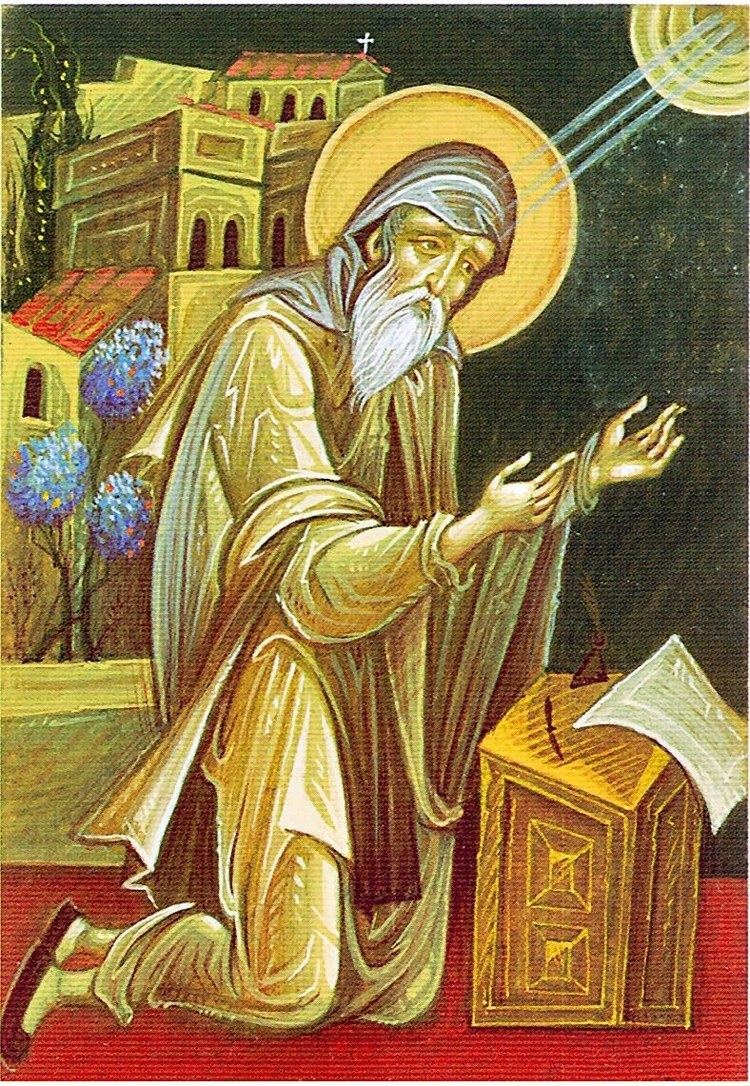
I conclude with a hymn, written in the tenth century by Symeon the New Theologian, the Byzantine Christian monk and poet. It is a hymn long since sung in monasteries that captures for us even today this experience of the Holy Spirit, the mystery and gift of God’s dwelling within us.
How can you be both a blazing hearth and a cool fountain
a burning yet a sweetness that cleanses us
How can you make man god, darkness light
and draw new life from the pit of death?
How does night become day? Can you overcome gloom?
Take the flame to our hearts and change the depths of our being?
How are you simply one of us? How do you give us the Son of God?
How do you burn us with love and wound us without a sword?
How can you bear us and remain so slow to anger
yet from where you are, watch our smallest gestures here?
How do you follow our actions from so high and so far?
Your servant waits for peace and courage in tears.
This gift of tears, which is the fruit of love, underscores our life as one long epiclesis – discipleship as the calling down of the Holy Spirit upon our lives and the world in which we are called to be holy witnesses to the risen Christ.
Related
